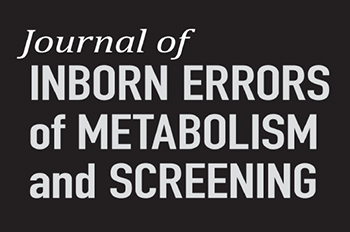| Phe exchange |
Food list in which each |
• |
More control in the amount of food |
• |
Patients could only eat 1 or 2 foods to |
|
|
list per 15 mg |
|
food in different grams/ portion has 15 mg of |
• |
Easier to establish Phe intake and Phe blood levels |
|
complete Phe requirement and have deficiencies in carbohydrates, fat, vitamins, |
|
|
|
|
Phe, and they are |
• |
Only 1 food list |
|
and minerals because they don’t eat |
|
|
|
|
exchangeable |
• |
Autonomy in selecting their own food |
|
different food groups, no variety |
|
|
|
|
|
• |
Pick according to availability, preference, costs, and culture |
• |
Difficult to weight and measure food, arduous, and impractical |
|
|
|
|
|
|
|
• |
Some patients might not understand the exchange concept |
|
|
|
|
|
|
|
• |
Limited information on Phe content of some commercial foods |
|
|
|
|
|
|
|
• |
More restrictive |
| Phe exchange |
Food list in which each |
• |
More control in the amount of food |
• |
Patients could only eat 1 or 2 foods to |
|
|
list per 50 mg |
|
food in different grams has 50 mg of Phe, and |
• |
Easier to establish Phe intake and Phe blood levels |
|
complete Phe requirement and have deficiencies in carbohydrates, fat, vitamins, |
|
|
|
|
they are exchangeable |
• |
Only 1 food list |
|
and minerals because they don’t eat |
|
|
|
|
|
• |
Pick according to availability, |
|
different food groups, no variety |
|
|
|
|
|
|
preference, costs, and culture |
• |
Difficult to weight and measure food, |
|
|
|
|
|
• |
Fruits and vegetables containing less |
|
arduous, and impractical |
|
|
|
|
|
|
than 75 mg of Phe/100 g are free |
• |
Some patients might not understand the exchange concept |
|
|
|
|
|
|
|
• |
Patients may eat a significant quantity of extra Phe, protein, or energy from free foods |
| Phe exchange |
Each food group has their |
• |
More food group balance/equilibrium |
• |
Patients could only select 1 option from |
|
|
list by food |
|
own amount for the |
• |
Dietitian will calculate exact amounts |
|
each food group and have no variety |
|
|
group |
|
exchange, for example, |
|
of exchanges from vegetables, fruits, |
• |
Difficult to weight and measure food, |
|
|
|
|
cereals 30 mg, fruit and |
|
and cereals, variety |
|
arduous, and impractical |
|
|
|
|
vegetables 15 mg |
• |
Pick according to availability, preference, costs, and culture |
• |
Some patients might not understand the exchange concept |
| Counting total protein |
Food lists with only protein content no Phe, |
• |
More food lists available to count protein |
• |
Amount of Phe per gram of protein depends on the type of food and could |
|
|
|
|
patients count total |
• |
More variety on products that has |
|
have important variations |
|
|
|
|
grams of protein per |
|
only the protein content |
• |
Difficult to weight and measure food, |
|
|
|
|
day |
• |
Less rigid diet |
|
arduous, and impractical |
| Food lists with |
Only one list with allowed |
• |
Variety |
• |
Difficult to establish relation between Phe |
|
|
allowed and |
|
and prohibited |
• |
No measuring |
|
intake and Phe blood levels |
|
|
prohibited |
|
|
• |
Easier to understand |
• |
Not individualization |
|
|
|
|
|
|
More freedom |
• |
Inadequate portions |
